
The rural farmers supplying Hong Kong ‘Demon Chef’ Alvin Leung’s farm-to-table restaurant Cafe Bau
- Yi O farm, on Lantau Island, is a major supplier of rice and other produce to Alvin Leung’s Wan Chai restaurant Cafe Bau, which opened last year
- For Leung, the venture is about reducing his carbon footprint, and a reminder of a time when Hong Kong was more of an agrarian society
Imagine a world where inanimate things can talk: the locally grown produce used in Cafe Bau, a restaurant in Hong Kong’s Wan Chai district, might express mounting confusion as it moves closer to its final destination.
The bags of rice and fresh lemongrass harvested from southwest Lantau Island would find it hard to believe that Johnston Road, where trams ding, cars honk and people clamour, is still Hong Kong.
After all, this produce is from Yi O farm, a picturesque 100,000 sq ft (0.9 hectare) plot of farmland surrounded by mountains – an area that could not be any more different to the jam-packed streets of Wan Chai, a district where 180,000 people live and to which 600,000 people travel every day, according to the Hong Kong government’s Home Affairs Department.
“I wanted to tell people that there were more parts like this in Hong Kong probably 50 years ago. I would say up to the 1970s, there was still a lot of farmland. At its peak, this place used to have around 1,000 residents who farmed,” says Cafe Bau’s executive chef, Alvin Leung, gesturing into the distance. Yi O farm currently employs five people.
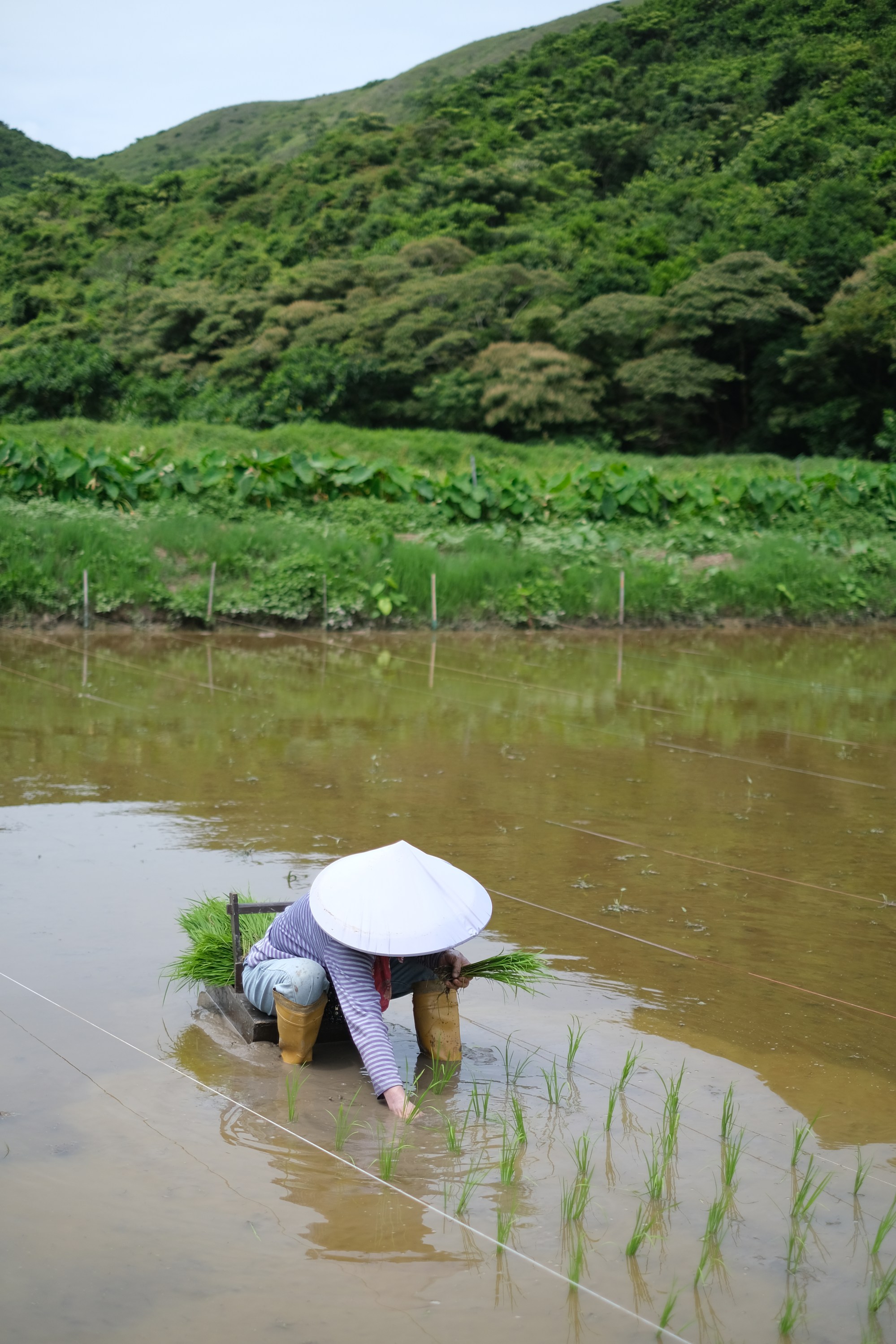
Yi O is a village with a history that goes back two centuries. As Hong Kong transformed, people moved away, and by 2012 it was deserted. That was the year the newly founded Yi O Agricultural Cooperation – a cooperative created by former residents and their supporters – began restoring the village.
Since then, the cooperative has pursued farming and hosted various events related to environmental protection in Yi O.
Cafe Bau opened in 2023, with farm-to-table cooking its central ethos. Yi O farm supplies some of its locally grown ingredients, in particular its rice.
“About 99 per cent of our products are either local or sourced without the use of planes. The milk, dairy, all the vegetables, the meat. We don’t use any meat that is not from Hong Kong. We use local beef, poultry, pork and seafood,” says Leung.
A page of Cafe Bau’s menu shows an illustrated map of Hong Kong, with arrows pointing out the ingredients it sources from different districts, among them Lam Tsuen honey from Tai Po, and Ping Yuen chicken from Fanling.
“I wanted to show people that at one stage Hong Kong was like this. It’s something that we had but we don’t have any more,” Leung says.
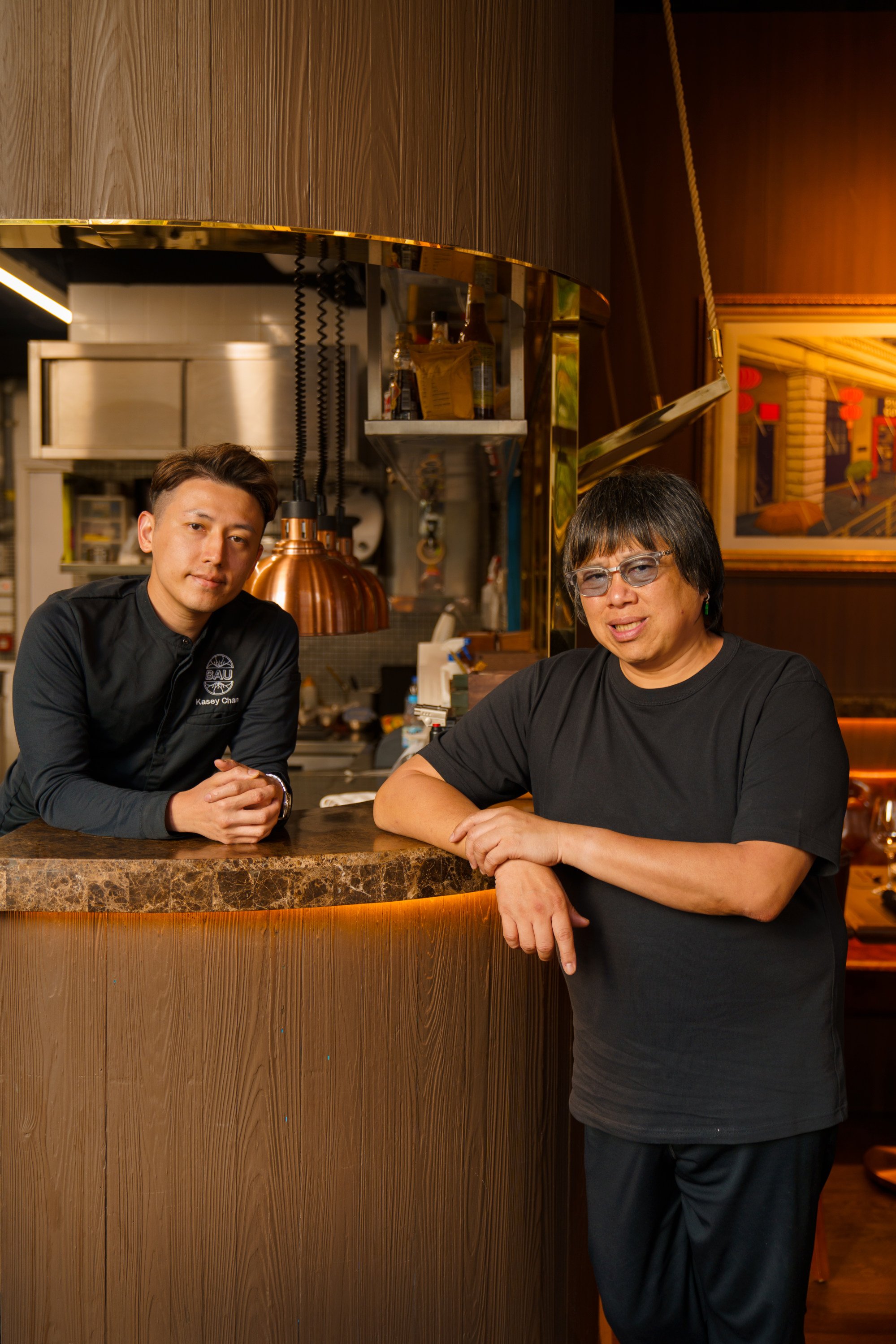
This focus on reconnecting with Hong Kong’s past way of life is what distinguishes Cafe Bau from Bo Innovation, Leung’s two-Michelin-star restaurant in Central.
From an engineering background, British-born and Canada-raised Leung made his name as a chef at Bo Innovation, where he has been showcasing his creative reinterpretations of Chinese dishes for more than 20 years.
When he established that restaurant, the food he created was so different from what people typically expected from Chinese cooking that Leung created a nickname for his approach: “X-treme Chinese”. In turn he earned the nickname “Demon Chef”.
The chef likens Bo Innovation’s artistic boldness to that of Picasso.
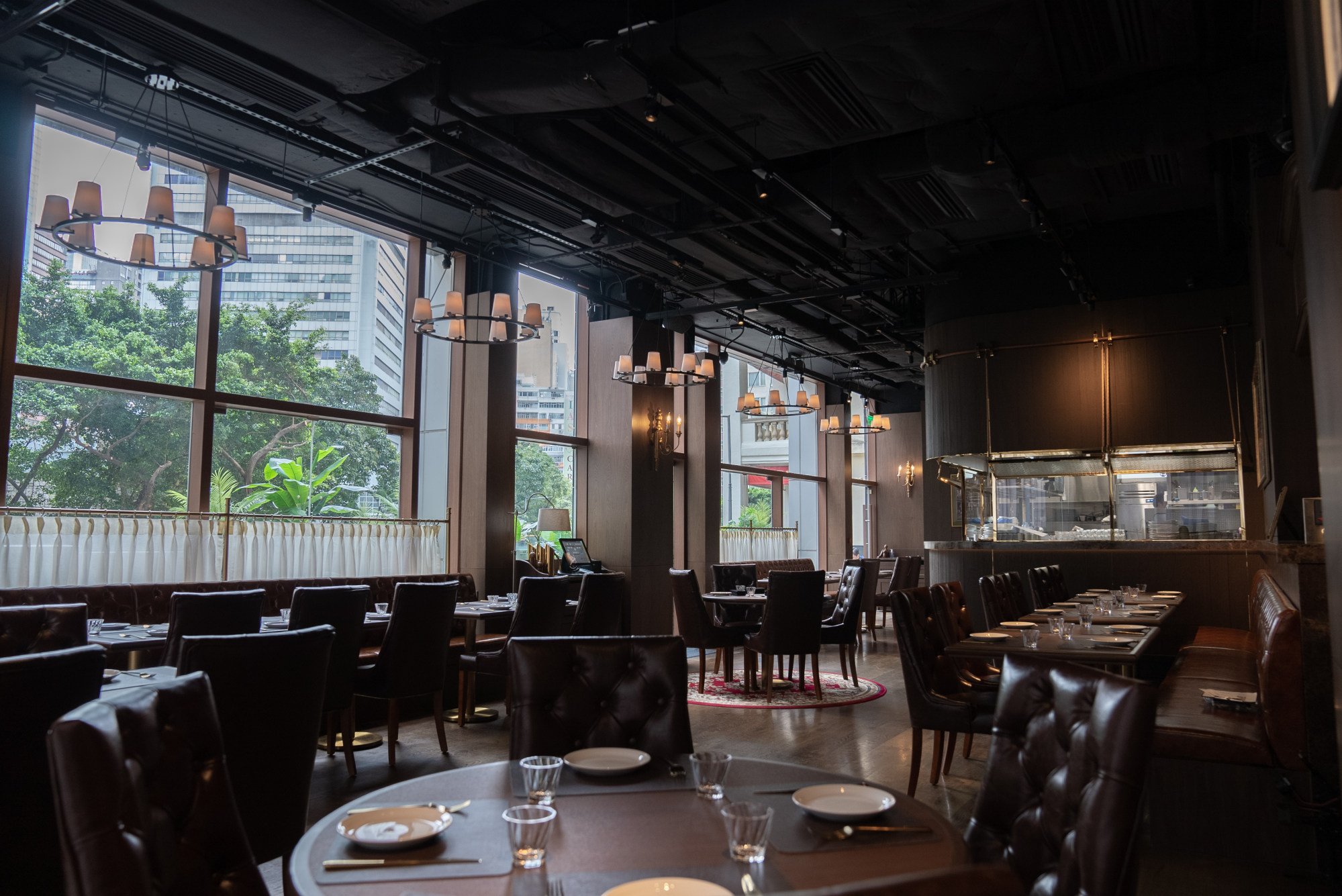
Still, Cafe Bau’s farm-to-table Cantonese cuisine and Bo Innovation’s “X-treme Chinese” share Leung’s ethos of trying to provide diners with experiences that may not be available anywhere else.
Another strong impetus for Leung when it came to Cafe Bau was to raise awareness about reducing carbon emissions.
“Reducing our carbon footprint is something in the environment that we can still aim to tackle,” he says, adding that the restaurant gets items that need to be shipped, such as wine, by sea rather than by air.
When it comes to farms in Hong Kong, no one is in it for the money. No one’s making profit. It is really because they are passionate about it.
Despite the good reasons for doing so, using locally grown produce from Yi O farm is not the most practical or the easiest choice. The logistics of getting the items from the secluded farm – reached only by a 10-minute boat ride or a 40-minute walk from the fishing village of Tai O, already just over an hour’s drive from Wan Chai – were bound to be difficult.
Then there is the inherent unpredictability. When it comes to farming, you have to accept that uncontrollable factors such as the weather have a big impact.
Sourcing ingredients from farms operating on a relatively small scale presents bigger challenges when the unpredictable strikes.
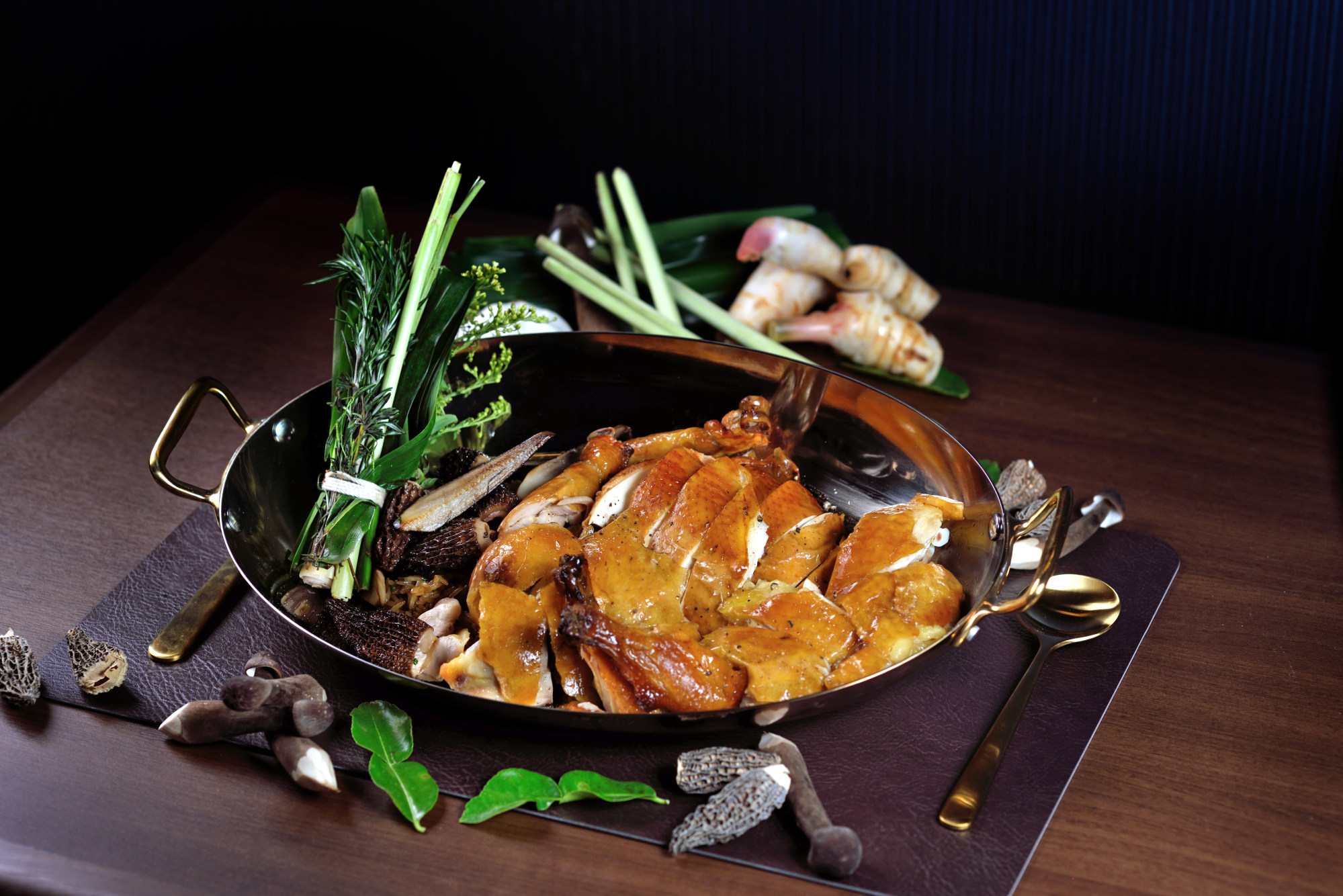
Despite the practical challenges, Leung believes firmly in his approach. When diners at his restaurant are presented with an opportunity to try dishes made of the freshest local produce that prompt them to think about carbon emissions, larger scale change may become possible.
“I know it’s not possible for everyone to eat completely organic or local. But the most important thing is to create awareness. I know that one person will not be able to change the world. But if everyone has some awareness, we’ll all be more resourceful in our own ways,” Leung says.
He also deeply appreciates that Hong Kong farms are run on passion and not in pursuit of profits.
“When it comes to farms in Hong Kong, no one is in it for the money,” he says. “It doesn’t make any economic sense to do this. No one’s making profit. It is really because they are passionate about it.”
Indeed, the faces of farmers gleam with pride and joy as they dig ginger, carrots and turnips, and pick cherry tomatoes, heirloom tomatoes and cabbages, and generously hand them out to visitors to their secluded farm. They share that they are even experimenting with growing coffee plants.
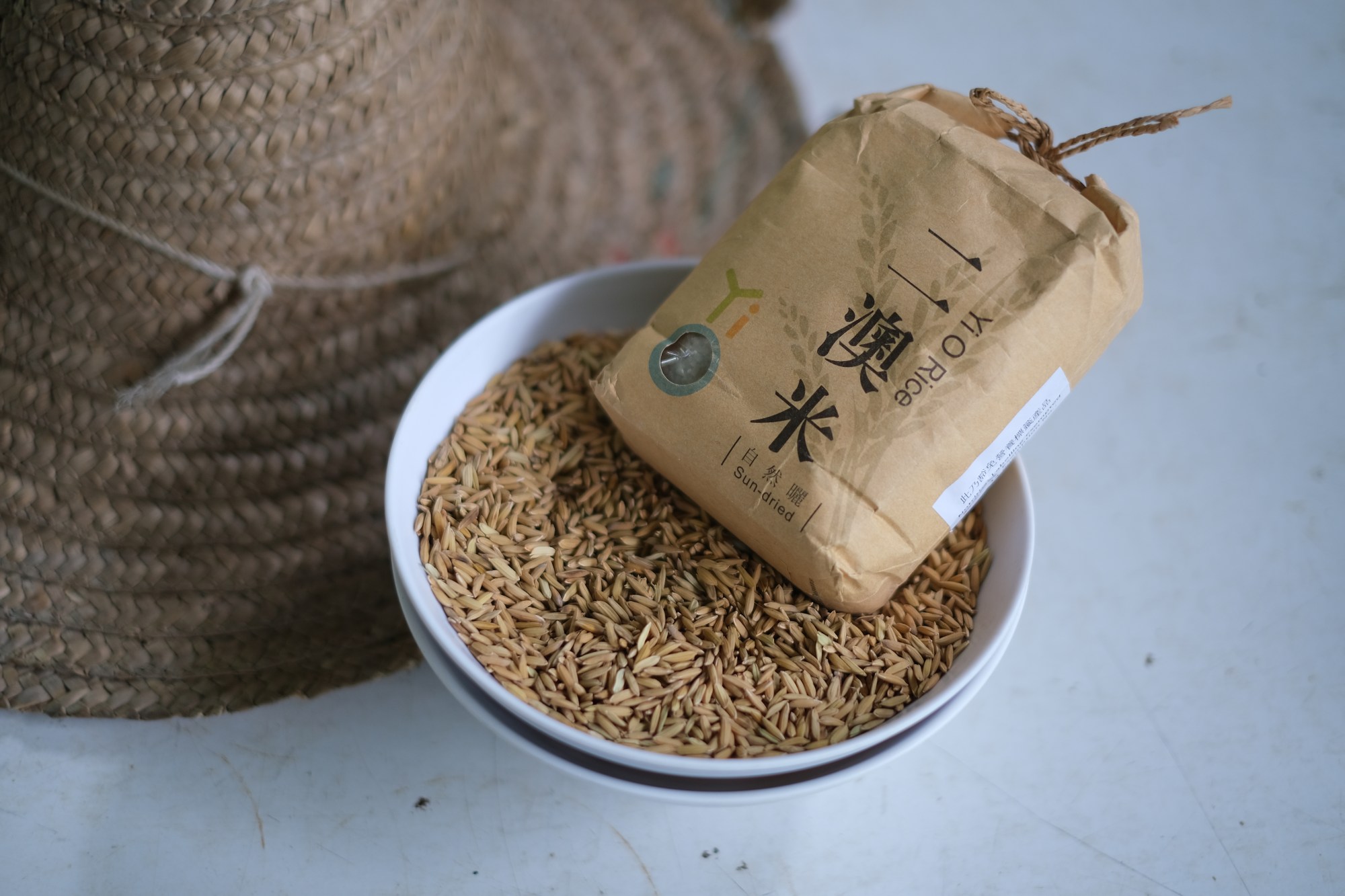
As we make our way through the farm, it’s clear that its bounty of produce, rich in aromas and colours, is what gets the chef’s creative juices flowing.
Leung sniffs a deep orange-coloured piece of ginger freshly dug from the earth, with bits of soil still clinging to it. “Maybe we can use it in a chicken dish after grating it,” he says to head chef Kasey Chan.
Currently, the farm’s best-known crop is its Yi O rice, and Leung buys a large part of its yield for Cafe Bau; it goes into a signature dish of roast Ping Yuen chicken, morels and black termite mushrooms with Yi O rice.
But does this rice taste better than any other rice? Leung says that compared to imported rice it is firmer in texture and the grains less broken.
Whether it really is “better” or not depends on who’s eating it. But for many, it will definitely mean something that it is grown in Hong Kong.

